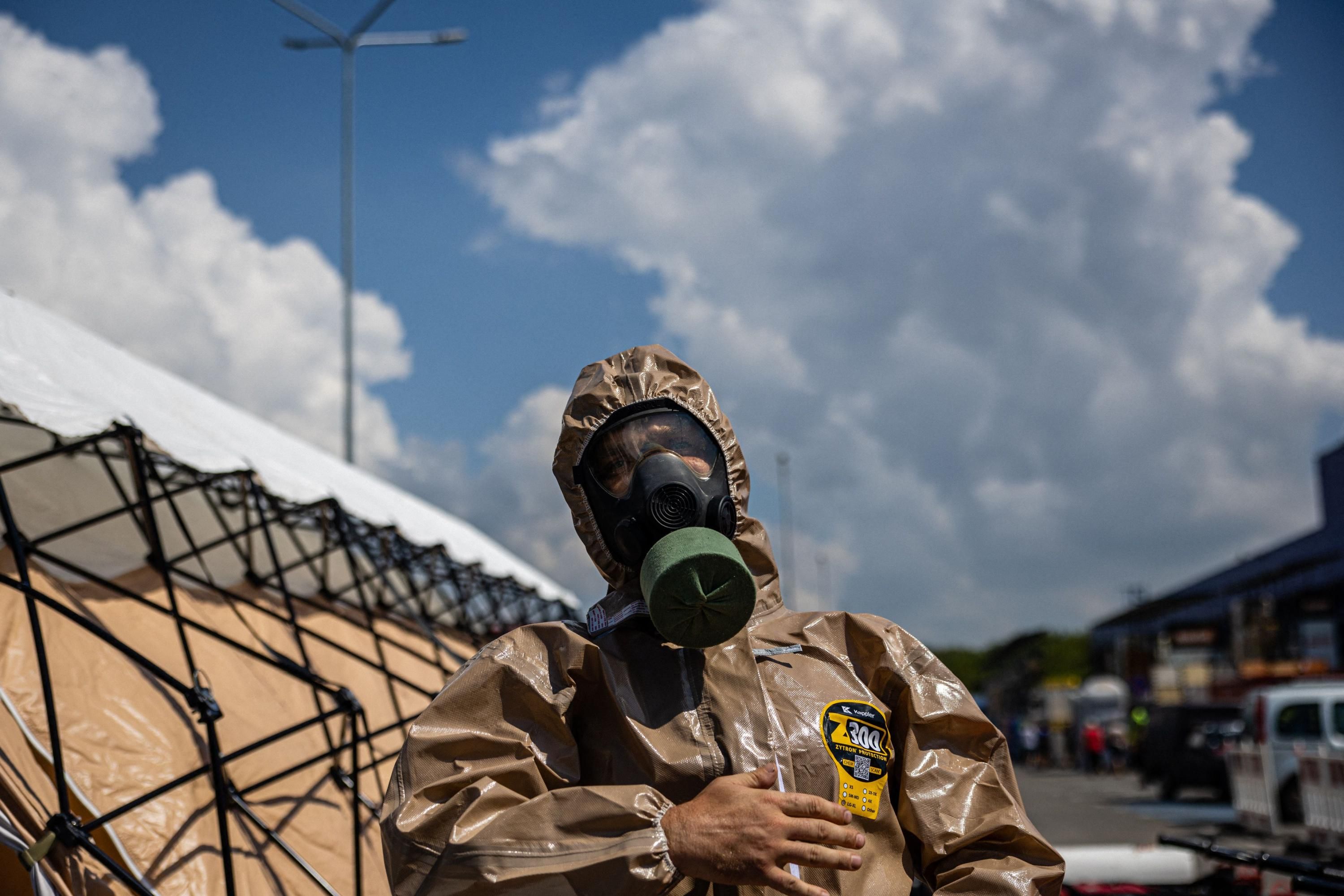
Ukraine's Zaporizhzhia nuclear power plant, the largest atomic energy facility in all of Europe, was briefly cut off from the war-torn country's electrical grid Thursday after fires damaged a transmission line, an incident that spotlighted the severe dangers posed by ongoing fighting between Ukrainian and Russian forces near the vulnerable site.
"The perilous nature of what unfolded today should not be underestimated."
The Associated Press reported that "the damaged line apparently carried outgoing electricity—and thus the region lost power, according to Yevgeny Balitsky, the Russia-installed governor."
"As a result of the damage, the two reactors still in use went offline, he said, but one was quickly restored, as was electricity to the area," AP added. "The line that was apparently affected is different from the one that carries power to run cooling systems essential for the safe operation of the reactors. A loss of power in those supply lines is a major concern of experts warily watching the fighting."
Anton Gerashchenko, an adviser to Ukraine's minister of internal affairs, warned in a tweet Thursday that "if [the] Zaporizhzhia plant isn't connected to the grid again, another Fukushima or Chernobyl can happen."
According to Reuters, "Fires broke out in the ash pits of a coal power station near the Zaporizhzhia reactor complex—Europe's largest nuclear facility—and interfered with power lines connecting the plant to the grid."
The facility is currently under the control of Russian forces but Ukrainian workers are still tasked with maintaining the plant's day-to-day operations. Kyiv and Moscow have accused each other of shelling near the plant; earlier this year, fighting caused a fire to break out at the facility.
"Any further escalation of the situation could lead to self-destruction."
While the plant was soon reconnected to the power grid Thursday without any apparent structural issues, environmentalists, international nuclear safety monitors, and atomic energy experts have been warning for months of potentially grave consequences should the Zaporizhzhia plant incur major damage.
"The perilous nature of what unfolded today should not be underestimated," said Samuel Ramani, tutor of politics and international relations at the University of Oxford. "The collapse of external connections to the plant means reliance on diesel-fueled generators. If those generators malfunction, the reactor could overheat and create a nuclear disaster in 90 minutes."
Reuters reported that two reactors at Zaporizhzhia "that had been disconnected were being powered by diesel generators" earlier Thursday.
"Each power unit, which includes a reactor, a cooling system, and other equipment, has three Soviet-era diesel generators that 'are not able to work for weeks,'" Reuters added, citing an unnamed source. "A spokesperson for Energoatom denied the diesel generators had been switched on."
In March, Greenpeace released an analysis warning that "in the event of a loss of cooling and resultant fire in any of the spent fuel pools at Zaporizhzhia, the potential for a very large release of radioactivity would have a devastating effect not only on Ukraine but also its neighboring countries, including Russia, and potentially, depending on the weather conditions and wind directions, on a large part of Europe."
Addressing the United Nations Security Council on Wednesday, U.N. Secretary-General António Guterres said he is "gravely concerned about the situation in and around" Zaporizhzhia. Guterres has called for the immediate demilitarization of the area surrounding the plant, a demand that Russia has rejected.
"The warning lights are flashing," Guterres said in his speech. "Any actions that might endanger the physical integrity, safety, or security of the nuclear plant are simply unacceptable. Any further escalation of the situation could lead to self-destruction. The security of the plant must be ensured, and the plant must be reestablished as purely civilian infrastructure."
This content originally appeared on Common Dreams - Breaking News & Views for the Progressive Community and was authored by Jake Johnson.